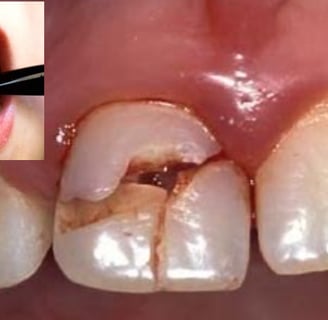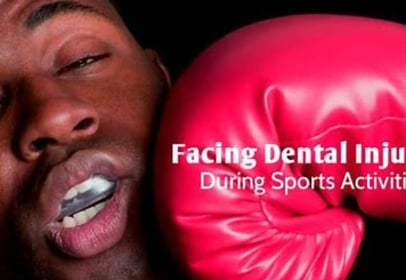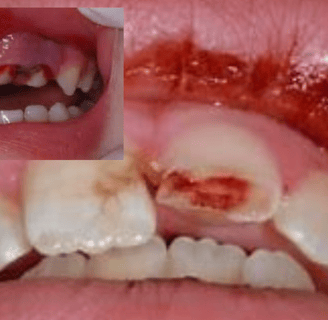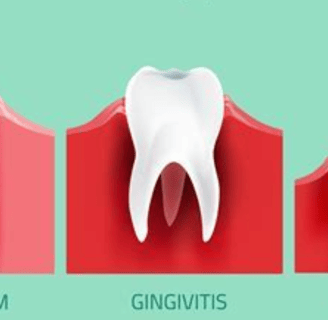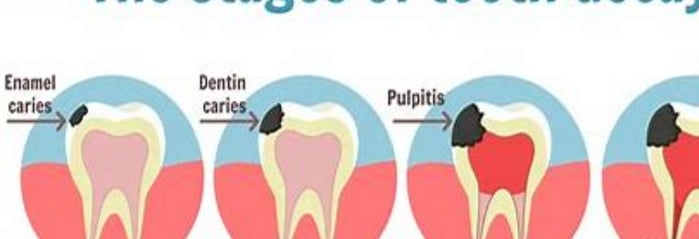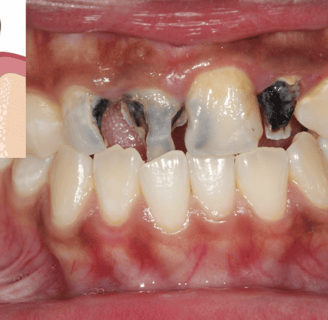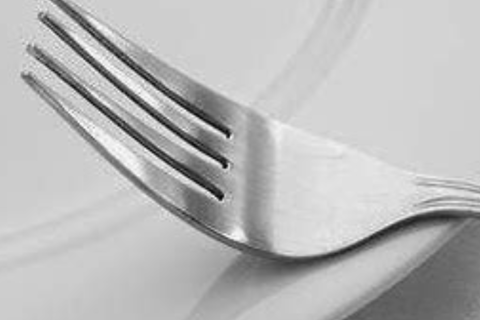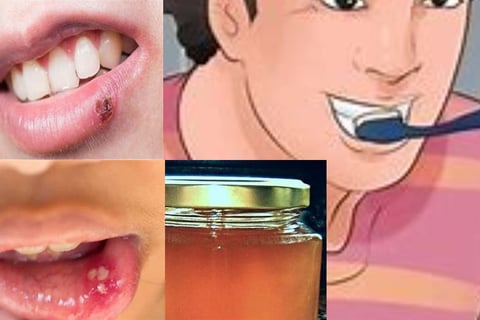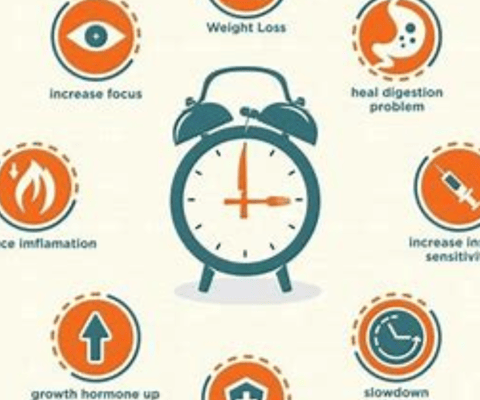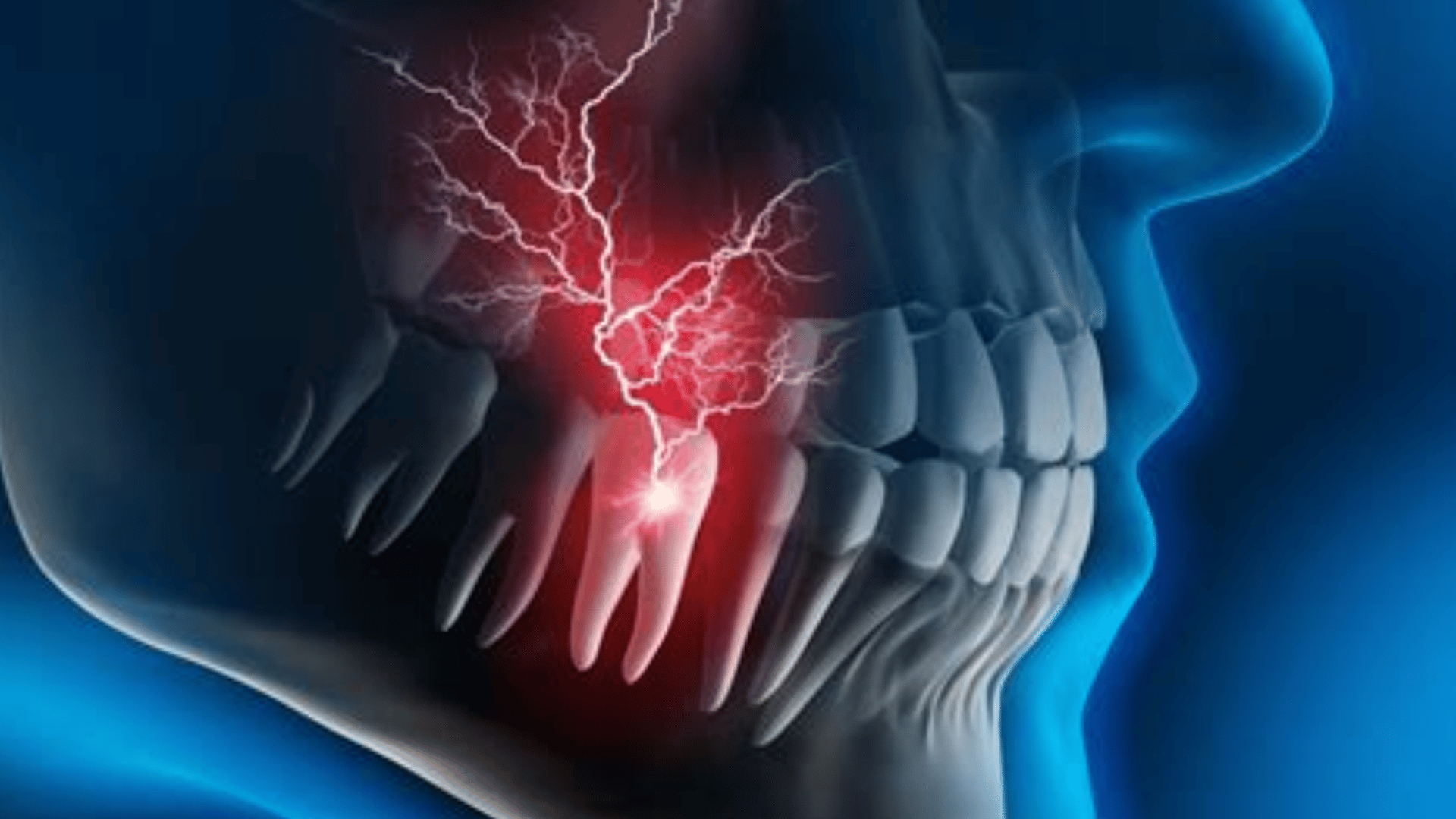
Treatment dental pain by fasting
Learn about managing chronic diseases like hyperglycemia and dental pain through fasting, autophagy, and other mechanisms
NERVOUS SYSTEM
Dr Hassan Al Warraqi


Managing dental pain by fasting
Dental pain is a common problem that can affect people of all ages.
It can be caused by a variety of factors, including cavities, tooth decay, gum disease, and injuries.
it may be aggravated with chronic disease such as hyperglycemia
Causes of dental pain
Cavities: Cavities are holes in the teeth that are caused by plaque buildup. Plaque is a sticky film of bacteria that forms on the teeth. When plaque is not removed, it can produce acids that attack the tooth enamel. This can lead to cavities, which can cause pain and sensitivity.
Tooth decay: Tooth decay is a process that causes the breakdown of tooth enamel and dentin. It is caused by a combination of factors, including plaque buildup, sugary foods and drinks, and poor oral hygiene. Tooth decay can cause pain, sensitivity, and tooth loss.
Gum disease: Gum disease is an infection of the gums. It is caused by plaque buildup and poor oral hygiene. Gum disease can cause pain, swelling, bleeding, and tooth loss.
Injuries: Injuries to the teeth and gums can cause pain. This can happen from falls, sports injuries, or dental procedures.
Symptoms of dental pain
The symptoms of dental pain can vary depending on the cause. However, some common symptoms include:
Sharp or throbbing pain
Sensitivity to hot and cold foods and drinks
Pain when chewing or biting
Swelling or redness of the gums
Bad breath
Loose teeth
Treatment for dental pain
The treatment for dental pain will vary depending on the cause. However, some common treatments include:
Fillings: Fillings are used to repair cavities and prevent further decay.
Root canals: Root canals are used to treat infected teeth. The infected nerve and pulp are removed, and the tooth is filled and sealed.
Extractions: Extractions are used to remove teeth that are severely damaged or diseased.
Antibiotics: Antibiotics may be prescribed to treat gum infections.
Pain relievers: Over-the-counter pain relievers, such as ibuprofen or acetaminophen, can help to relieve pain and inflammation.
Preventing dental pain
There are a few things you can do to help prevent dental pain, including:
Brush your teeth twice a day for two minutes with a fluoride toothpaste.
Floss once a day.
See your dentist for regular checkups and cleanings.
Avoid sugary foods and drinks.
Quit smoking.
quit alcohol
control other risk factors
If you experience dental pain, it is important to see your dentist as soon as possible.
Early diagnosis and treatment can help to prevent further complications and pain.
honey
brushing the tooth gums floor of the mouth 5 times a days or more no harm
Mouthwash and gargle using a spoon of honey repeat as much as you can
ingestion of honey its analgesic
barakah blessing of honey mention in holy quran
fasting
a state of escape to protective shield
if you can't do Islamic do intermittent in which you do fasting for 16-18 hours water and non sugary fluid are allowed
autophagy stem cells and other mechanisms could be the benefit.
may controlled the chronic problem such as hyperglycemia hypertension hyperlipidemia hyperuricemia etc.
key words
dental,pain,hyperglycemia ,antalgic,fasting,honey,risk,factors, fasting for 16-18 hours water and non sugary fluid are allowed,autophagy stem cells and other mechanisms ,hyperglycemia hypertension hyperlipidemia hyperuricemia,Mouthwash and gargle using a spoon of honey ,
Dental Health, Tooth Pain, and Fasting: A Comprehensive Guide
This article offers an in-depth exploration of dental health, tooth pain, and the impact of fasting, particularly during Ramadan, on oral and dental well-being.
It emphasizes practical tips and preventive measures, drawing from credible sources to enhance the fasting experience while maintaining optimal oral health.
First: The Impact of Fasting on Oral and Dental Health
Fasting, especially during Ramadan, introduces physiological changes due to prolonged abstinence from food and drink, which can affect oral and dental health. Below is a detailed breakdown of these effects:
1. Dry Mouth
What is Dry Mouth? Dry mouth, or xerostomia, occurs during fasting due to reduced fluid intake, leading to decreased saliva production. Saliva is a critical component in protecting teeth from decay and bacterial growth.
Impact on Teeth:“Dry mouth results from fluid deficiency, impacting saliva production and increasing the risk of tooth decay and gum disease.” Similarly, that “dry mouth heightens the susceptibility of teeth to cavities.”
Why It Matters: Saliva acts as a natural cleanser, neutralizing acids, washing away food particles, and preventing bacterial buildup. A lack of saliva compromises this protective mechanism, making teeth more vulnerable to damage.
Additional Context: Prolonged dry mouth can also lead to discomfort, difficulty chewing, and a burning sensation in the mouth, further emphasizing the need for hydration during non-fasting hours.
2. Bad Breath (Halitosis)
Cause: Bad breath during fasting is linked to dry mouth and the increased production of ketones, which are byproducts of fat breakdown for energy. These ketones interact with oral bacteria, producing an unpleasant odor.
Expert Insight: Johns Hopkins Aramco Medical Center explains, “Ketones cause bad breath, which worsens with dry mouth due to dehydration during fasting.”
Mitigation Strategies: Maintaining rigorous oral hygiene and drinking ample water between Iftar (breaking the fast) and Suhoor (pre-dawn meal) can significantly reduce bad breath. Using non-alcoholic mouthwash or chewing sugar-free gum (if permissible) during non-fasting hours may also help.
Cultural Note: In many Muslim communities, bad breath during fasting is sometimes viewed as a natural part of the spiritual practice, but proactive oral care can minimize its impact.
3. Increased Risk of Oral Health Issues
Common Problems: Reduced saliva flow heightens the risk of tooth decay, gum inflammation (gingivitis), and persistent bad breath, particularly when oral hygiene is neglected or sugary foods are consumed excessively.
Why Ramadan Specifically?
highlights that “Ramadan sees a rise in oral diseases due to dry mouth, reduced saliva, and increased consumption of sweets.” The tradition of indulging in sugary desserts during Iftar can exacerbate these risks.
Preventive Measures: Adhering to a consistent oral hygiene routine, including brushing, flossing, and limiting sugary foods, is essential to counteract these risks.
Broader Implications: Poor oral health during fasting can also affect overall well-being, as oral infections may contribute to systemic health issues if left untreated.
4. Impact on Diabetic Patients
Why Are They More Vulnerable? Individuals with diabetes face heightened risks of gum disease, tooth decay, and bad breath due to elevated blood and saliva sugar levels, which foster bacterial growth.
Medical Warning: Daleely Medical cautions that “fasting may worsen these issues in diabetic patients if blood sugar levels are not well-controlled.”
Recommendations: Diabetic individuals should consult their healthcare provider before fasting to ensure safe management of their condition. Regular monitoring of blood sugar and strict oral hygiene are crucial during Ramadan.
Second: Tips for Maintaining Dental Health During Fasting
To safeguard oral health during fasting, the following evidence-based practices are recommended:
Brushing Teeth
Recommendation: Brush teeth twice daily—after Iftar and Suhoor—using a fluoride-based toothpaste to strengthen enamel and prevent decay.
Expert Advice: Prime Care Dental Clinic emphasizes that “brushing twice daily is essential to prevent plaque buildup and cavities.”
Pro Tip: Use a soft-bristled toothbrush to avoid damaging gums, and consider brushing for at least two minutes to ensure thorough cleaning.
Using Dental Floss
Importance: Flossing removes food particles and plaque from areas inaccessible to a toothbrush, reducing the risk of cavities and gum disease.
Guidance: Johns Hopkins Aramco Medical Center advises “using dental floss at least once daily to maintain oral cleanliness.”
Alternative: Interdental brushes or water flossers can be used for those who find traditional flossing challenging.
Non-Alcoholic Mouthwash
Benefits: Non-alcoholic mouthwash reduces oral bacteria and freshens breath without the risk of irritation.
Precaution: Avoid swallowing mouthwash during fasting hours, as noted by Prime Care Dental Clinic.
Selection Tip: Choose a mouthwash with antibacterial properties and fluoride for added protection.
Miswak (Traditional Tooth-Stick)
Why It’s Effective: Miswak, derived from the Salvadora persica tree, contains natural antibacterial agents and promotes gum health.
Endorsement: Prime Care Dental Clinic states, “Miswak is a traditional, effective tool for cleaning teeth and combating bacteria.”
Cultural Significance: Widely used in Islamic tradition, miswak is a practical and permissible oral hygiene tool during fasting.
Staying Hydrated
Significance: Drinking sufficient water between Iftar and Suhoor combats dehydration and stimulates saliva production.
Advice: Johns Hopkins Aramco Medical Center recommends “consuming ample water during non-fasting hours to reduce the risk of cavities and gum disease.”
Hydration Hack: Incorporate hydrating foods like watermelon or cucumbers during meals to boost fluid intake.
Avoiding Sugars and Carbonated Drinks
Reason: Sugary and acidic beverages erode enamel and promote decay.
Recommendation: Johns Hopkins Aramco Medical Center suggests “minimizing sweets and sugary drinks and brushing after meals to prevent cavities and gum irritation.”
Healthy Alternatives: Opt for unsweetened teas, milk, or water to maintain hydration without harming teeth.
Quitting Smoking
Benefits: Smoking cessation reduces the risk of gum disease, tooth staining, and oral cancer.
Ramadan Opportunity: Johns Hopkins Aramco Medical Center encourages smokers to “use Ramadan as a chance to quit smoking and improve oral health.”
Support: Seek professional help or nicotine replacement therapies to ease the transition during fasting.
Third: Managing Tooth Pain During Fasting
1. Dental Treatments During Fasting
Are Treatments Permissible? Yes, procedures like fillings or extractions can be performed without breaking the fast, provided no liquids or blood are swallowed.
Expert Opinion: Prime Care Dental Clinic clarifies, “Treatments such as fillings or extractions do not affect fasting if conducted carefully.
” Additionally, an Egyptian Fatwa House ruling confirms that unintentional swallowing does not invalidate the fast.
Practical Tip: Inform your dentist about fasting to ensure precautions are taken during treatment.
2. Anesthetic Injections
Do They Break the Fast? No, as they are not used for nutritional purposes.
Source: Daleely Medical confirms that “anesthetic injections are safe during fasting.”
Patient Comfort: These injections allow for pain-free dental procedures, making them a viable option during Ramadan.
3. Painkillers
Challenge: Taking painkillers during fasting hours is difficult, as they often require food or water.
Solution: Consult a healthcare provider to explore alternative pain management options, such as topical gels or non-oral medications.
Timing: If permissible, take painkillers during non-fasting hours (after Iftar or before Suhoor).
4. Does Tooth Pain Justify Breaking the Fast?
Religious Perspective: Severe tooth pain or the need for medication may permit breaking the fast, with the obligation to make up the missed days later.
Source: Islam Web states, “God has permitted those who find fasting difficult due to illness to break their fast.”
Guidance: Consult a trusted religious authority and a medical professional to assess the severity of the condition.
Fourth: Home Remedies for Temporary Tooth Pain Relief
For temporary relief from tooth pain, the following remedies, endorsed by sources like , can be effective:
Saltwater Rinse: Cleanses the mouth and reduces inflammation.
Cold Compress: Alleviates swelling and numbs pain.
Clove Oil: Contains eugenol, a natural anesthetic and antibacterial agent.
Apple Cider Vinegar and Baking Soda: Offer antiseptic and anti-inflammatory properties.
Vanilla Extract and Guava Leaves: Help soothe pain and reduce inflammation.
Natural Herbs: Garlic, mint, aloe vera, thyme, turmeric, cinnamon, and green tea have antibacterial and anti-inflammatory benefits.
Diluted Hydrogen Peroxide: Reduces pain and plaque but must be used cautiously, avoiding swallowing, and is not suitable for children.
Over-the-Counter Painkillers: Ibuprofen or acetaminophen can provide relief, but consult a doctor or pharmacist before use.
Caution: These remedies are temporary. Persistent pain requires professional dental evaluation.
Fifth: When Is Tooth Pain Serious?
Tooth pain is considered serious if it:
Persists beyond two days.
Is accompanied by fever, swelling, ear pain, or foul-tasting discharge.
Shows signs of infection, such as gum redness or pain when chewing.
Action: advises seeking immediate dental care to prevent complications.
Sixth: Risks of Delaying Dental Treatment
Potential Complications: Untreated tooth decay can lead to tooth death, abscess formation, or systemic infections affecting the heart, brain, or other organs.
Expert Warning: Islam Web cautions that “neglecting dental treatment can cause greater harm, extending to other parts of the body.”
Proactive Steps: Regular dental checkups and prompt treatment of issues like cavities or gum disease can prevent severe outcomes.
Conclusion
Fasting, particularly during Ramadan, can impact oral health by causing dry mouth, increasing the risk of tooth decay, gum inflammation, and bad breath.
Preventive measures, such as maintaining a strict oral hygiene routine, staying hydrated, and avoiding sugary foods, are essential.
Certain dental treatments can be safely performed during fasting with precautions, and home remedies offer temporary relief for tooth pain.
However, severe or persistent pain necessitates immediate consultation with a dentist.
Delaying treatment can lead to serious complications, including abscesses or systemic infections.
Keywords: Dental health, tooth pain, fasting, Ramadan, dry mouth, tooth decay, bad breath, oral hygiene, dental treatment.
FAQS FREQUENTLY ASKED QUESTION
Does Fasting Affect Tooth Pain?
Fasting can impact tooth pain in various ways. It may reduce inflammation in the gums and teeth, potentially alleviating pain caused by inflammation.
Avoiding food and drink during fasting can also temporarily relieve pain from tooth sensitivity. However, fasting may increase pain sensitivity in cases like dry mouth or low blood sugar and can interfere with regular painkiller use.
For severe or persistent tooth pain, consult a dentist rather than relying solely on fasting.
What Are the Most Common Dental Problems During Ramadan Fasting?
Common dental issues during Ramadan include dry mouth due to reduced fluid intake, which decreases saliva production and increases risks of tooth decay and bad breath from ketone-bacteria interactions.
Neglecting oral hygiene and consuming sugary or acidic foods and drinks after breaking the fast can worsen tooth decay, gum disease, bad breath, and oral thrush.
How Can You Take Care of Your Teeth During Ramadan?
To maintain oral health during Ramadan:
Brush your teeth twice daily (after Iftar and Suhoor) with fluoride toothpaste.
Floss daily to remove food particles and plaque.
Use a non-alcoholic mouthwash cautiously, avoiding swallowing.
Use a miswak for effective cleaning and bacteria control.
Stay hydrated between Iftar and Suhoor, eat fiber-rich foods, and avoid sugary or carbonated drinks.
Does Dental Treatment Affect Fasting?
Dental treatments like fillings or extractions can be performed during fasting if no liquids or blood are swallowed.
Unintentional swallowing does not invalidate the fast, Consult your dentist to schedule the best time for treatment.
What Are Quick Home Remedies for Tooth Pain Relief?
Effective home remedies for tooth pain include:
Rinsing with warm saltwater to disinfect and reduce inflammation.
Applying a cold compress to the cheek to ease swelling.
Using clove or clove oil to numb the area.
Rinsing with diluted apple cider vinegar to kill bacteria.
Applying baking soda or vanilla extract for pain relief.
Chewing fresh guava leaves for their analgesic properties.
What Painkillers Are Safe for Tooth Pain?
Over-the-counter painkillers like ibuprofen (effective for pain and inflammation) or acetaminophen (suitable for children or those unable to take ibuprofen) can help.
Topical gels with benzocaine provide temporary numbing. Consult a doctor or pharmacist before use and follow dosage instructions to avoid side effects.
When Is Tooth Pain a Sign of a Serious Problem Requiring a Dentist?
Visit a dentist immediately if:
Tooth pain persists beyond one or two days.
Symptoms include fever, ear pain, swelling, pain when chewing, red gums, or foul-tasting discharge.
These may indicate serious issues like pulpitis or a dental abscess requiring urgent treatment.
Does Delaying Dental Treatment Affect Overall Health?
Delaying dental treatment can worsen problems, leading to tooth loss, abscesses, or infection spread to other body parts (e.g., heart or brain).
An infected tooth can become a source of chronic infection, impacting overall health. Prompt treatment is essential to prevent complications.
SEO Notes: This response uses targeted keywords like "tooth pain," "Ramadan fasting," "dental care," and "home remedies" to improve searchability. Headings are structured for readability and SEO, addressing common queries concisely while maintaining natural language flow.
Does Fasting Affect Tooth Pain?
Fasting can impact tooth pain in various ways. It may reduce inflammation in the gums and teeth, potentially alleviating pain caused by inflammation.
Avoiding food and drink during fasting can also temporarily relieve pain from tooth sensitivity.
However, fasting may increase pain sensitivity in cases like dry mouth or low blood sugar and can interfere with regular painkiller use.
For severe or persistent tooth pain, consult a dentist rather than relying solely on fasting.
What Are the Most Common Dental Problems During Ramadan Fasting?
Common dental issues during Ramadan include dry mouth due to reduced fluid intake, which decreases saliva production and increases risks of tooth decay and bad breath from ketone-bacteria interactions.
Neglecting oral hygiene and consuming sugary or acidic foods and drinks after breaking the fast can worsen tooth decay, gum disease, bad breath, and oral thrush.
How Can You Take Care of Your Teeth During Ramadan?
To maintain oral health during Ramadan:
Brush your teeth twice daily (after Iftar and Suhoor) with fluoride toothpaste.
Floss daily to remove food particles and plaque.
Use a non-alcoholic mouthwash cautiously, avoiding swallowing.
Use a miswak for effective cleaning and bacteria control.
Stay hydrated between Iftar and Suhoor, eat fiber-rich foods, and avoid sugary or carbonated drinks.
Does Dental Treatment Affect Fasting?
Dental treatments like fillings or extractions can be performed during fasting if no liquids or blood are swallowed.
Unintentional swallowing does not invalidate the fast, Consult your dentist to schedule the best time for treatment.
What Are Quick Home Remedies for Tooth Pain Relief?
Effective home remedies for tooth pain include:
Rinsing with warm saltwater to disinfect and reduce inflammation.
Applying a cold compress to the cheek to ease swelling.
Using clove or clove oil to numb the area.
Rinsing with diluted apple cider vinegar to kill bacteria.
Applying baking soda or vanilla extract for pain relief.
Chewing fresh guava leaves for their analgesic properties.
What Painkillers Are Safe for Tooth Pain?
Over-the-counter painkillers like ibuprofen (effective for pain and inflammation) or acetaminophen (suitable for children or those unable to take ibuprofen) can help. Topical gels with benzocaine provide temporary numbing.
Consult a doctor or pharmacist before use and follow dosage instructions to avoid side effects.
When Is Tooth Pain a Sign of a Serious Problem Requiring a Dentist?
Visit a dentist immediately if:
Tooth pain persists beyond one or two days.
Symptoms include fever, ear pain, swelling, pain when chewing, red gums, or foul-tasting discharge.
These may indicate serious issues like pulpitis or a dental abscess requiring urgent treatment.
Does Delaying Dental Treatment Affect Overall Health?
Delaying dental treatment can worsen problems, leading to tooth loss, abscesses, or infection spread to other body parts (e.g., heart or brain). An infected tooth can become a source of chronic infection, impacting overall health. Prompt treatment is essential to prevent complications.
SEO Notes: This response uses targeted keywords like "tooth pain," "Ramadan fasting," "dental care," and "home remedies" to improve searchability. Headings are structured for readability and SEO, addressing common queries concisely while maintaining natural language flow.
What Are the Most Common Dental Problems During Ramadan Fasting?
Common dental issues during Ramadan include dry mouth due to reduced fluid intake, which decreases saliva production and increases risks of tooth decay and bad breath from ketone-bacteria interactions.
Neglecting oral hygiene and consuming sugary or acidic foods and drinks after breaking the fast can worsen tooth decay, gum disease, bad breath, and oral thrush.
How Can You Take Care of Your Teeth During Ramadan?
To maintain oral health during Ramadan:
Brush your teeth twice daily (after Iftar and Suhoor) with fluoride toothpaste.
Floss daily to remove food particles and plaque.
Use a non-alcoholic mouthwash cautiously, avoiding swallowing.
Use a miswak for effective cleaning and bacteria control.
Stay hydrated between Iftar and Suhoor, eat fiber-rich foods, and avoid sugary or carbonated drinks.
Does Dental Treatment Affect Fasting?
Dental treatments like fillings or extractions can be performed during fasting if no liquids or blood are swallowed.
Unintentional swallowing does not invalidate the fast, per Egypt’s Dar Al-Ifta. Consult your dentist to schedule the best time for treatment.
What Are Quick Home Remedies for Tooth Pain Relief?
Effective home remedies for tooth pain include:
Rinsing with warm saltwater to disinfect and reduce inflammation.
Applying a cold compress to the cheek to ease swelling.
Using clove or clove oil to numb the area.
Rinsing with diluted apple cider vinegar to kill bacteria.
Applying baking soda or vanilla extract for pain relief.
Chewing fresh guava leaves for their analgesic properties.
What Painkillers Are Safe for Tooth Pain?
Over-the-counter painkillers like ibuprofen (effective for pain and inflammation) or acetaminophen (suitable for children or those unable to take ibuprofen) can help.
Topical gels with benzocaine provide temporary numbing.
Consult a doctor or pharmacist before use and follow dosage instructions to avoid side effects.
When Is Tooth Pain a Sign of a Serious Problem Requiring a Dentist?
Visit a dentist immediately if:
Tooth pain persists beyond one or two days.
Symptoms include fever, ear pain, swelling, pain when chewing, red gums, or foul-tasting discharge.
These may indicate serious issues like pulpitis or a dental abscess requiring urgent treatment.
Does Delaying Dental Treatment Affect Overall Health?
Delaying dental treatment can worsen problems, leading to tooth loss, abscesses, or infection spread to other body parts (e.g., heart or brain).
An infected tooth can become a source of chronic infection, impacting overall health. Prompt treatment is essential to prevent complications.
SEO Notes:
This response uses targeted keywords like "tooth pain," "Ramadan fasting," "dental care," and "home remedies" to improve searchability.
Headings are structured for readability and SEO, addressing common queries concisely while maintaining natural language flow.

